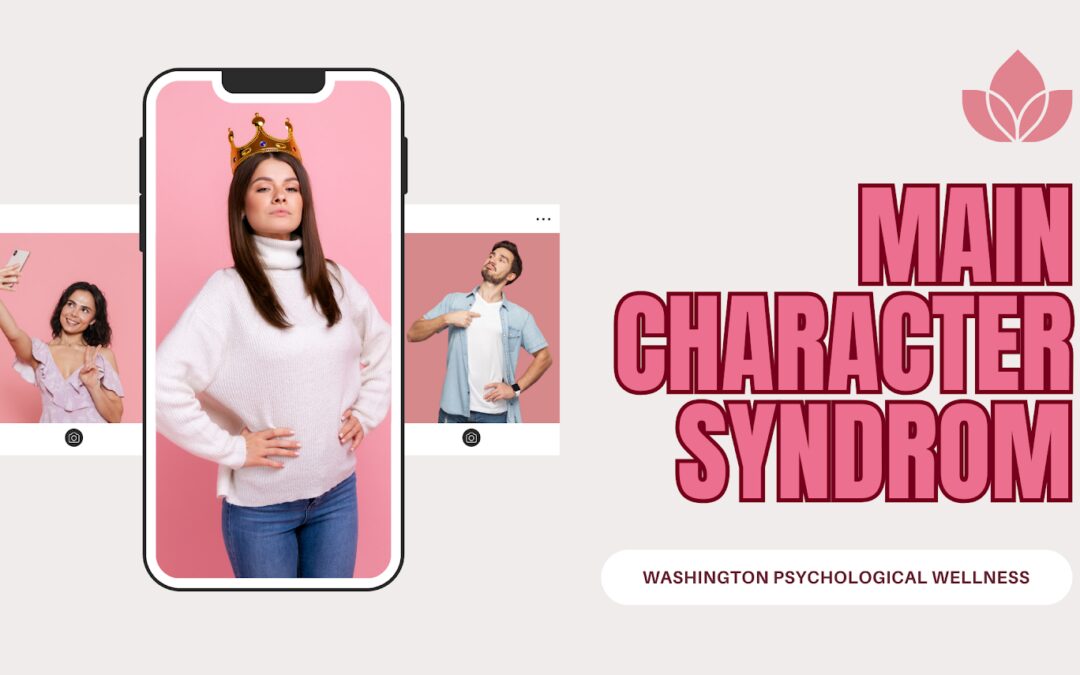What is Main Character Syndrome and How Do I Recognize It?
In the age of social media, where everyone can curate their own digital persona, a fascinating psychological phenomenon known as “Main Character Syndrome” has emerged. This term, though not a formal psychological diagnosis, encapsulates a mindset where individuals perceive themselves as the central figure in their life story, often to the detriment of others around them. But what exactly is Main Character Syndrome, and how can you recognize it? Let’s delve into the details.
Understanding Main Character Syndrome
Main Character Syndrome (MCS) is a colloquial term describing a behavior pattern where individuals act as if they are the main character in a story, and everyone else is merely a supporting character. This mindset can lead to narcissistic behaviors and an exaggerated sense of self-importance. The term has gained traction on social media platforms like TikTok, Instagram, and Twitter, where users share humorous anecdotes and videos highlighting the phenomenon.
Signs of Main Character Syndrome
Recognizing Main Character Syndrome can be tricky because it often involves subtle behaviors that may seem innocuous at first. Here are some key signs to look out for:
- Constant Need for Attention: People with MCS crave constant attention and validation. They often dominate conversations, steer discussions back to themselves, and feel uncomfortable when they are not the center of attention.
- Overemphasis on Personal Narrative: Individuals with MCS often narrate their lives as if they are in a movie, emphasizing their struggles, victories, and emotions while downplaying or ignoring the experiences of others.
- Lack of Empathy: A hallmark of MCS is a diminished capacity to empathize with others. Those with this syndrome may struggle to understand or appreciate the feelings and perspectives of those around them.
- Exaggerated Self-Importance: People exhibiting MCS often believe their problems, achievements, and experiences are more significant than those of others. They may have an inflated sense of their own importance in social, work, or personal situations.
- Social Media Obsession: While not exclusive to MCS, an obsession with curating an idealized version of oneself on social media platforms can be a sign. Individuals with MCS often post content designed to highlight their perceived main character moments, seeking validation through likes and comments.
How to Address Main Character Syndrome
If you recognize signs of Main Character Syndrome in yourself or others, it’s essential to address the behavior constructively:
Practice Self-Awareness: Reflect on your actions and their impact on others. Are you dominating conversations? Are you dismissing others’ experiences?
- Cultivate Empathy: Make a conscious effort to listen to others and understand their perspectives. Engage in active listening and show genuine interest in their stories.
- Balance Your Narrative: While it’s natural to see your life as a story, remember that others have their own stories too. Balance your narrative by acknowledging and valuing the experiences of those around you.
- Seek Feedback: Don’t be afraid to ask friends and family for honest feedback about your behavior. Constructive criticism can be invaluable in recognizing and addressing MCS tendencies.
- Limit Social Media Use: Take breaks from social media and focus on real-life interactions. Reducing the time spent curating your online persona can help you stay grounded and connected to reality.
Contact Us
Main Character Syndrome is a modern-day phenomenon amplified by social media and our culture of self-promotion. By understanding and recognizing the signs of MCS, you can take steps to foster healthier, more balanced relationships with those around you. Remember, while everyone is the protagonist of their own story, we all play supporting roles in the lives of others.
For more insights into mental health and wellness, visit the Washington Psych Wellness blog. Here, you’ll find a wealth of resources to help you navigate the complexities of modern life with empathy and self-awareness.

